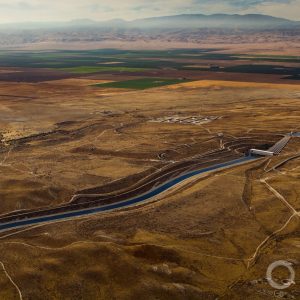The Stream, June 28: Large Groundwater Reserves Discovered In California
The Global Rundown
A study of deep groundwater sources in California found triple the amount previously estimated under prime agricultural regions. Water shortages in Palestine are the result of a heat wave, not intentional cuts, according to Israel’s Water Authority. The Panama Canal opened its newest set of locks over the weekend, allowing bigger ships to traverse the waterway. Extreme rainfall in West Virginia triggered flash floods that killed nearly two dozen people. Tanzania called off an ethanol project that would have withdrawn large amounts of water from the Wami River.
“The main thing is discrimination — and the feeling is very bad among the people. The Israeli kids have swimming pools and landscaping… and the Palestinians don’t have water to wash their face.” –Eyad Yakob, a resident of the Palestinian town of Bidya. Some Palestinians blame recent water shortages on intentional cuts by Israeli water companies, but Israel’s Water Authority argues the shortages are occurring because of high demand driven by a heat wave. (Los Angeles Times)
By The Numbers
$5.4 billion Cost of the Panama Canal expansion, which opened Sunday. The new locks, while larger, are expected to conserve more fresh water than the old locks. Reuters
23 people Number killed by flash floods in West Virginia over the weekend. A line of storms delivered a 1,000-year rainfall event that turned deadly in the state’s mountainous terrain. USA Today
Science, Studies, And Reports
Groundwater reserves beneath eight counties in California’s Central Valley and South Coast regions are three times larger than previously thought, according to a study by researchers at Stanford University. The deep aquifers lie up to three kilometers below ground, but could be a future source of water for the parched state. Circle of Blue
On The Radar
Tanzania halted an energy development project that would have diverted large amounts of water from the Wami River to supply a sugar cane plantation and ethanol plant. The project was opposed by aid agencies that argued it would displace more than 1,500 people and harm wildlife. Reuters
A news correspondent for Circle of Blue based out of Hawaii. She writes The Stream, Circle of Blue’s daily digest of international water news trends. Her interests include food security, ecology and the Great Lakes.
Contact Codi Kozacek




